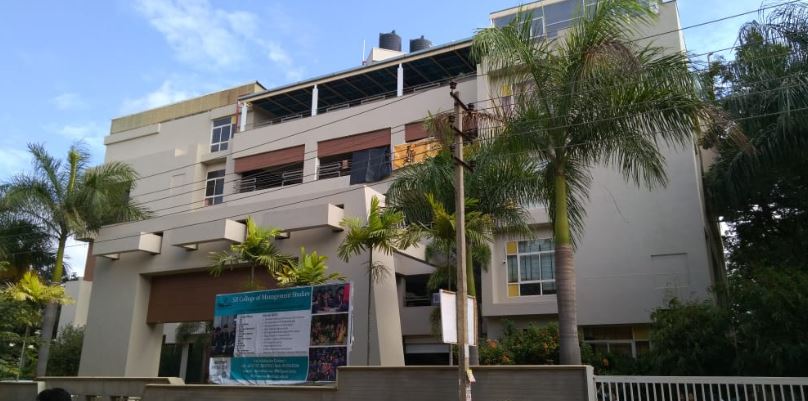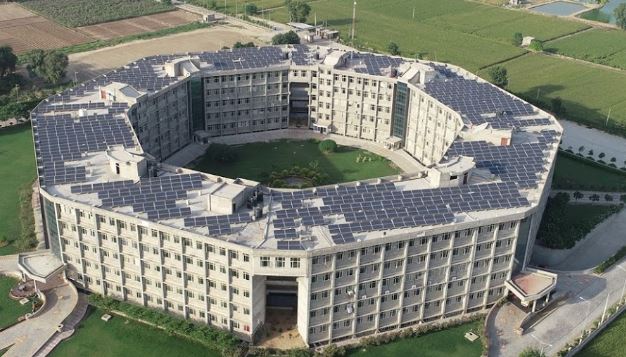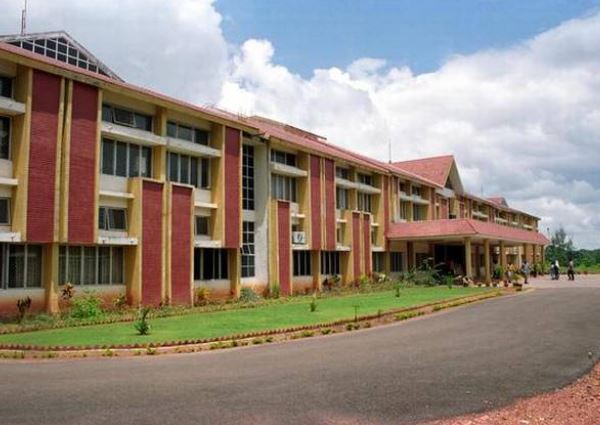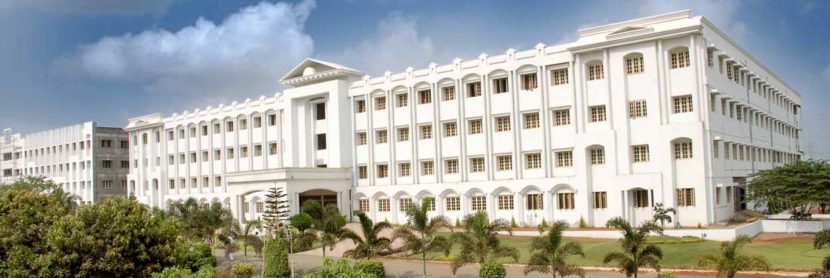
Reva University Yelahanka
- University
- Co - Education
- ESTD 2012
- Private University
Interested in this College?
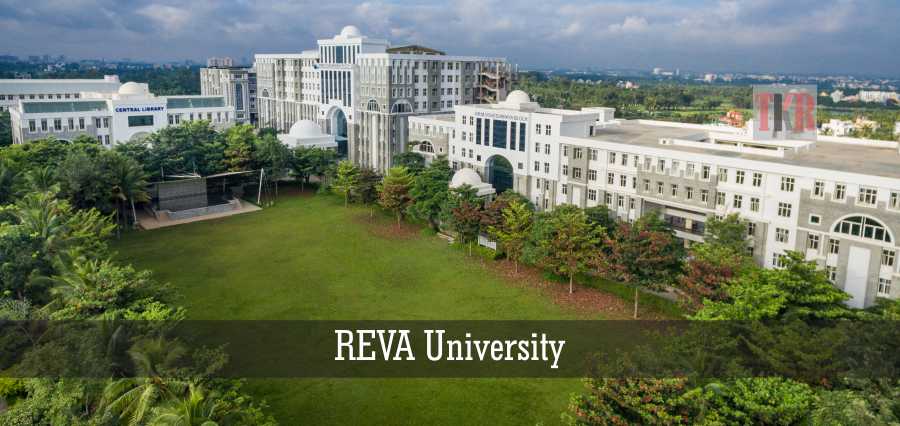
Master of Technology (M.Tech) Power and Energy System
M.Tech in Power and Energy Systems [Full Time]
Course
Electrical Engineering is a discipline of engineering that utilizes natural resources for generation, transmission and utilization of electric power.
The phenomenon of Global Warming caused by carbon dioxide, generated from the combustion of fossil fuels and other human activities, is largely responsible for the present global climate change. Exceeding the limits of carbon dioxide presence of 450 ppm, by the year 2050, in the atmosphere, could have dangerous consequences for the continuation of the human civilisation. In order to maintain carbon dioxide well within predicted safe limits in atmosphere, governments across the world are encouraging the harnessing of renewable sources for power generation. At present, the total installed capacity of solar power and wind power are 330 GW and 486 GW respectively against a total installed capacity of 16,000 GW. By the year 2040 it is estimated that more than 40% of the then total installed power will be generated from the renewable energy sources. A distinct trend has been observed in Europe, India and many other countries across the world where households, offices and even university campuses are installing roof-top solar power plants for meeting their energy needs. As we move towards the future, the domestic installation of solar and micro wind power will witness a dramatic shift and the cost of solar panels will, correspondingly, come down. Simultaneously, one can also see innovative, cost-effective, micro wind mills are coming into the market. Thus, in future, it is expected that a large number of houses, offices and institutions will become zero energy-draw houses meaning they will not draw energy from the power grid beyond the local boundary of the building clusters. The end use devices and gadgets will, at the same time, become more energy efficient and roof top mounted power plants will be coupled with batteries for energy storage. We can also see a scenario where Battery manufacturers will be able to develop high energy density and light weight batteries having long endurance. In India, during the eighties and the nineties of the 20th Century, people had to wait for several years to get a telephone connection. The advent of mobile phones has revolutionised the communication sector across the country and touched the lives of all of us irrespective of economic and the social status. Samuel Bodman, the former US Energy Secretary, once said in a speech that, ”As the technology for solar cells gets better and better, this form of clean, renewable energy will find more applications that take up less space and produce more electricity, to meet the energy needs of our homes, schools and businesses.” Surely the installation of roof-top, power plants will be able to revolutionise the power sector of our country given that India is in a position to generate solar energy almost throughout the year. India has one National Grid with an installed capacity of 344.00 GW as on 31 May 2018 out of which 69.02 GW is from renewable energy sources. India's being very active in renewable energy sector would like to achieve an installed total capacity of 175 GW by 31 March 2022, and the central Govt. has set up US$350 million fund to finance the solar projects.
The world’s population as well as population of India is growing, the per capita income of Indians is also growing approximately at 8%and the power sector is growing with a CAGR of 5.7% and the world as well as Government of India are investing for installation of large renewable energy power plants as well as conventional power plants to meet the ever increasing needs of electric power. This growth of power sector is creating a demand for specialist Power and Energy Systems engineers.
The School of Electrical and Electronics Engineering at REVA UNIVERSITY offers M. Tech., in Power and energy Systems –a postgraduate programme to create motivated, innovative, creative and thinking graduates to fill the roles of Power and Energy Systems Engineers who can conceptualize, design, analyze, develop, install and operate power and energy supply systems to meet the demands of the Society.
The companies like Bechtel Group, BICC Group, General Electric Co., AC Gentrol,Inc , Alstom Energy, American Environmental International, Inc. , Applied Engineering/UETM (producer of hydropower generation equipment & services.), Asea Brown Boveri (ABB), Baylor Company, Beckwith Electric Co. Inc., Besicorp Group, Bharat Heavy Electricals Limited (BHEL) , Schneider Electric Infrastructure, Siemens ,Yokogawa India and many others are in the business of power and energy systems.
In this context, The School of Electrical and Electronics Engineering at REVA UNIVERSITY would like to add to the growing human resources needs of Power and Energy Systems engineers through its M. Tech., programme in Power and Energy Systems.
Duration : 2 Years
Eligibility : BE/.Tech in EE/EEE/ECE/CSE/MS/MS.c in Mathematics/Physics/electronics/Information Technology or Information Science with a minimum of 50%(45% in case of SC/ST) marks in aggregate of any recognized as equivalent there to
Career Opportunities
- Power Generation – to study different types of conventional and non-conventional power generation plants, to study the impact on environment by different kinds of power generation,
- Power Sector – to understand the various schemes introduced by the Central Govt. & State Govt. for improving the distribution system, to design robust power system, to estimate transmission & distribution loss, to optimize the location of reactive power compensation to strengthen the distribution system, to carry out study on demand side management (DSM) to implement measures to keep the system secure, to enhance the operational performance of electric power generation, transmission & distribution equipments, to maintain quality of power, to mitigate harmonics, to damp oscillations,
- Renewable Energy Sources - to harness power from renewable sources using power electronics devices, to solve the issues related to integration of RES with grid, to develop and use various algorithms for enhanced power generation by RES, to enhance the capability of O&M of RES, to study integration of these sources with the grid
- Transport - electric vehicles, to design & develop of electric vehicles, to develop various algorithms for improvement in performance of electric vehicles, to enhanced capability of power electronics for electric vehicles, to vehicle to grid power transactions
- Power Electronics - design of compact and highly efficient power supplies, to develop various most advanced algorithms for charging circuits for different applications like electric appliances, battery energy storage system, ultra-capacitor applications, aerospace power requirements, UPS, applications in power system using FACTS devices, interconnection of two regions via HVDC link
- Computer – developing algorithms to solve complex functions, developing simulation tools to simulate the entire system, applications to SMART grid, operation and maintenance of micro-grids and smart grids, implementation of SCADA system for electric distribution system, etc.

